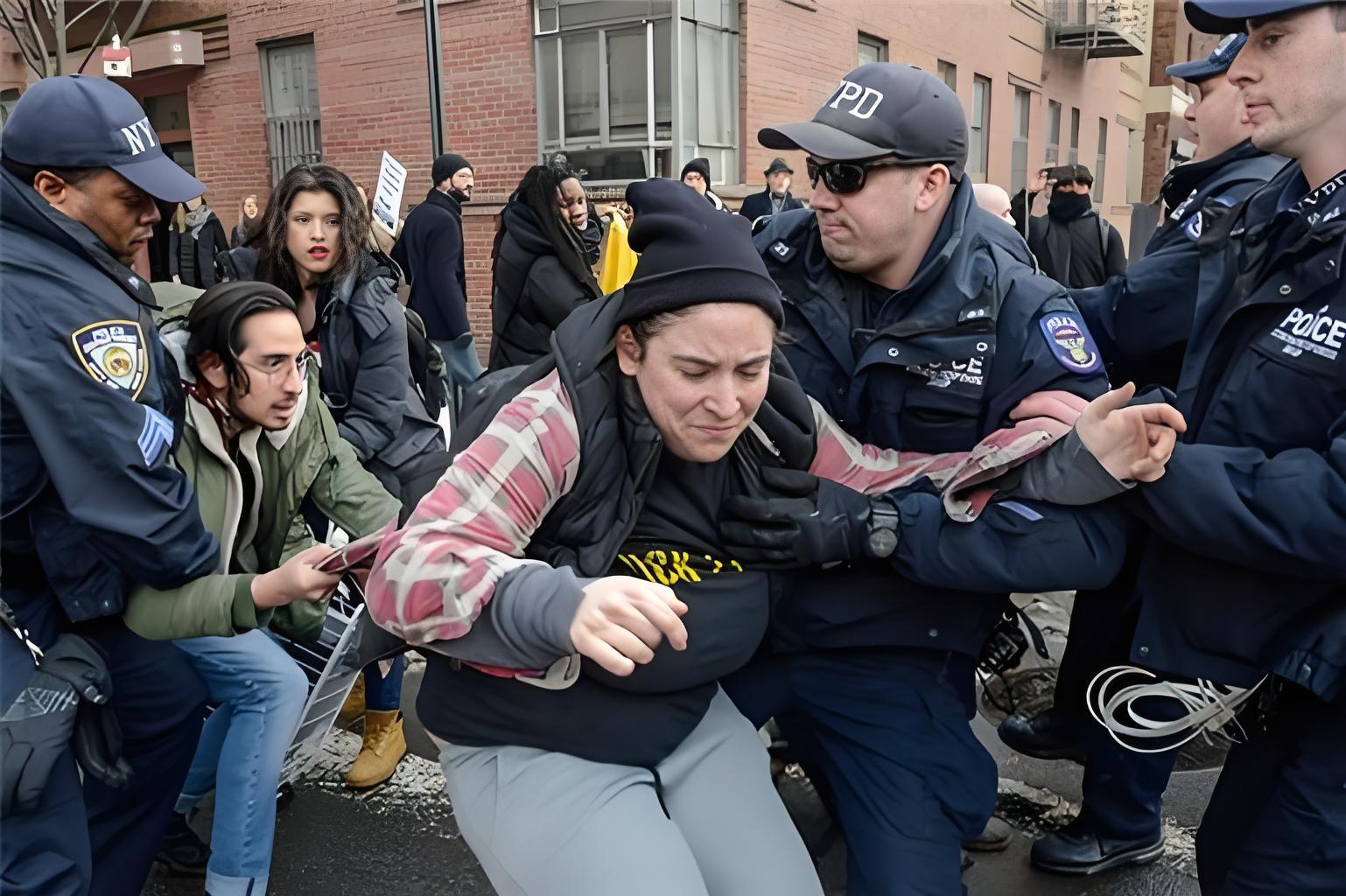
On the ever-changing political stage of the United States, Trump's order to allow the arrest of illegal immigrants in schools and churches is like a huge stone thrown into a calm lake, setting off huge waves. Behind this policy change are complex and multifaceted reasons and far-reaching impacts.
From a political perspective, Trump's decision has a clear political intention. First, it is to cater to the core voter group. Among Trump's core voters, white blue-collar workers account for a considerable proportion. They are under great competitive pressure in the job market brought about by immigrants. By promising to protect the job opportunities of native workers and adopting tough measures against illegal immigrants, Trump can consolidate his support rate among this group. Second, it is to arouse the enthusiasm of voters with xenophobic sentiments. There are some voters with xenophobic sentiments in American society who are uneasy about the cultural and social changes brought about by the influx of immigrants. Trump's tough stance can mobilize them to actively participate in voting. Third, it is to show a tough leadership style. By implementing such policies, Trump can demonstrate to the outside world that he has the ability and determination to solve tough problems, distinguishing himself from the weak image of traditional politicians. In addition, within the Republican Party, conservative forces hold a tough stance on the immigration issue. This move helps Trump consolidate his position in the conservative camp within the party and enhance his influence within the party.
From an economic perspective, the immigration issue also has important influencing factors. The influx of a large number of low-skilled immigrants into the United States has created fierce competition in the job market with native low-skilled labor. Immigrants are willing to accept lower wages and worse working conditions, which makes some employers prefer to hire immigrants, squeezing the job opportunities of native workers, especially in labor-intensive industries such as manufacturing and service. At the same time, the resettlement, education, medical care, etc. of immigrants all require the government to invest a large amount of funds. Some illegal immigrants are unable to pay taxes through formal channels but enjoy public welfare, bringing a heavy burden to local and federal finances. For example, public schools accepting the children of immigrants increases education expenditure; the public medical system also faces the pressure of providing services for a large number of immigrants. To some extent, Trump's order to hunt down illegal immigrants is also aimed at alleviating these economic pressures.
Social and cultural factors cannot be ignored either. Immigrants from different countries and regions bring their own unique cultures, values and lifestyles, which differ from the mainstream culture in the United States. This cultural difference may trigger cultural conflicts and social contradictions. For example, differences in religious beliefs and customs among different ethnic groups affect social harmony and stability. Due to poverty and difficulty in integrating into the local society, some immigrants may turn to a life of crime. The crime rate in some immigrant communities is relatively high, posing a challenge to social security and increasing people's concerns about security issues. Perhaps this policy of Trump is also an attempt to ease these social and cultural contradictions by reducing the number of illegal immigrants.
However, the impact of this policy is also multifaceted. From a humanitarian perspective, many illegal immigrants have left their hometowns and come to the United States, already facing many difficulties. Hunting them down in schools and churches, which should be places of refuge, will undoubtedly bring huge psychological trauma and life impacts to them and their families. From the perspective of social stability, it may lead to the wrong deportation of American citizens due to misidentification of identity, thereby triggering more violent incidents. Moreover, this policy will be resisted by states and cities under the rule of the Democratic Party, which may further intensify the political opposition and social division within American society. Internationally, the United Nations and many international human rights organizations have said that the US government's actions will lead to a humanitarian disaster, may exacerbate the global immigration crisis, and will also damage the image of the United States on the global stage and further "isolate" it.
Trump's order to arrest illegal immigrants in schools and churches is the result of the interweaving of multiple factors and a major move by him to solve the immigration problem in the United States through tough means. However, whether this move can really achieve the expected results and whether it will bring more problems and challenges to American society remain to be tested by time. In today's era of globalization, the immigration issue is complex and sensitive. How to strike a balance among safeguarding national interests, protecting citizens' rights and respecting human rights is a subject that the United States and even the entire international community need to think about deeply.

The U.S. third-quarter GDP growth rate, strikingly highlighted at 4.3%, not only surpassed market expectations but also earned the label of "the fastest in two years."
The U.S. third-quarter GDP growth rate, strikingly highligh…
Recently, US personnel intercepted a "Century" super oil ta…
According to Xinhua News Agency, the subtle changes in the …
The rapid development of artificial intelligence has brough…
In December 2025, Taiwan's political scene was shaken by a …
When Apple appears for the Nth time on the list of penaltie…